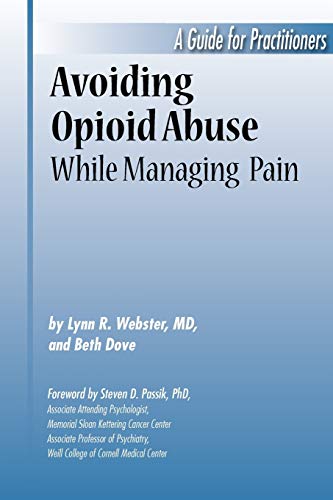By Lynn R. Webster and Beth Dove
Prescription opioids are dangerous in the hands of drug abusers, but they are also beneficial or even lifesaving for millions of people who otherwise would live with chronic pain. Clinicians who prescribe opioids are often caught between their professional obligation to relieve suffering and their desire to avoid contributing to the non-medical consumption of controlled substances.
Primary care physicians, nurse practitioners and other first-contact clinicians are uniquely positioned to make a difference at the beginning of medical treatment. Research indicates that a patient with chronic pain or a substance-abuse disorder is far more likely to seek treatment from a family doctor than from a specialist. That reality creates an opportunity for front-line clinicians to maximize the chances for success when patients begin opioid therapy.
This book was written to help all interested parties (eg, clinicians who treat pain, drug and medical-practice regulators, law-enforcement authorities and pharmacists) to sort out the clinical, regulatory, and ethical issues associated with the prescribing of opioid analgesics and to reduce the risk of medication misuse, abuse, and diversion. The information presented here is based on the work of numerous experts in the fields of pain management and addiction medicine. If knowledge is power, then this information is intended to instill the power and confidence needed for clinicians to safely treat their patients’ pain and restore their dignity and lost quality of life.



